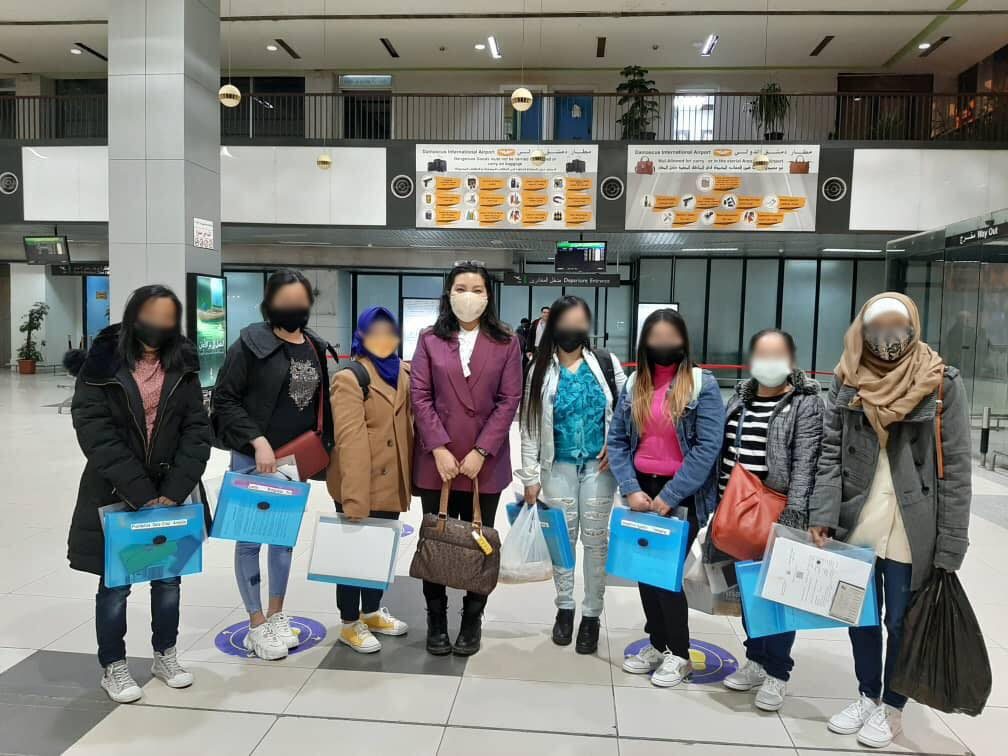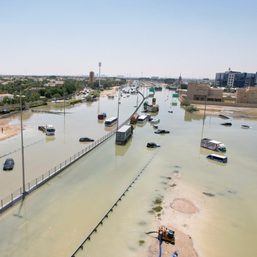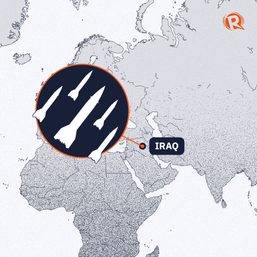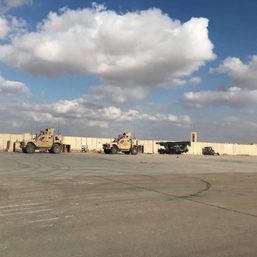SUMMARY
This is AI generated summarization, which may have errors. For context, always refer to the full article.

The Department of Foreign Affairs repatriated on Thursday, February 25, a batch of 7 Filipinos from the Philippine Embassy in Damascus, Syria, after being trafficked in the conflict-ridden country.
According to the DFA, the repatriates were illegally hired to work in Syria. They held tourist visas in Dubai, United Arab Emirates, and believed that this was the final destination of their employment.
“They [were] all undocumented workers in Syria who ran away from their employers due to harsh working conditions,” the DFA said in a Facebook post.
The department called this the second batch of repatriates after the first batch of 6 were brought home on February 4. There are still 25 left in the Embassy that are waiting for their schedule to come home.
The agency said it is “lobbying hard” with Syrian authorities and employers to secure exit clearances for the repatriates. It also has the funds to continuously assist the remaining Filipinos in Syria for their ongoing court cases.
The Department of Justice also stepped in to assist the repatriates in filing criminal complaints against their traffickers.
A January 2021 Washington Post report revealed chilling details of Filipino women being forcibly brought to Syria to work as maids. According to the report, they were subject to physical and sexual attacks by their employers and denied salaries.
The interviewed women identified two UAE-based employment agencies that allegedly participated in the trafficking.
On February 2, Senator Risa Hontiveros called for a Senate probe into the human trafficking situation, also citing the Washington Post story.
“Dahil na rin sa kakulangan ng oportunidad sa Pilipinas, nagiging mas bulnerable ang ating kababaihan sa trafficking (Because of the lack of opportunities in the Philippines, Filipino women are becoming more vulnerable to trafficking),” Hontiveros said in a press release.
“The pandemic will only drive many families further into poverty, making many members, especially women, more at risk of exploitation and abuse,” the senator added.
The Middle East remains a popular destination for overseas Filipinos. As of June 2020, the Philippine Statistics Authority said 13.2% of OFWs were documented to work in the UAE. Saudi Arabia meanwhile was the top destination of OFWs, with 22.4% working there. It shares a border with Iraq. – Rappler.com
Add a comment
How does this make you feel?










There are no comments yet. Add your comment to start the conversation.